The Loire Valley, a jewel in the heart of France, is renowned for its spectacular châteaux, each showcasing the country’s rich history of royalty and nobility. This guide explores these grand estates’ architectural and historical wonders, offering insights into their past and tips for visitors. As you explore the châteaux, you’ll also have the opportunity to indulge in the region’s esteemed wine and cuisine, immersing yourself in the full Loire Valley experience.
1. Château de Chambord
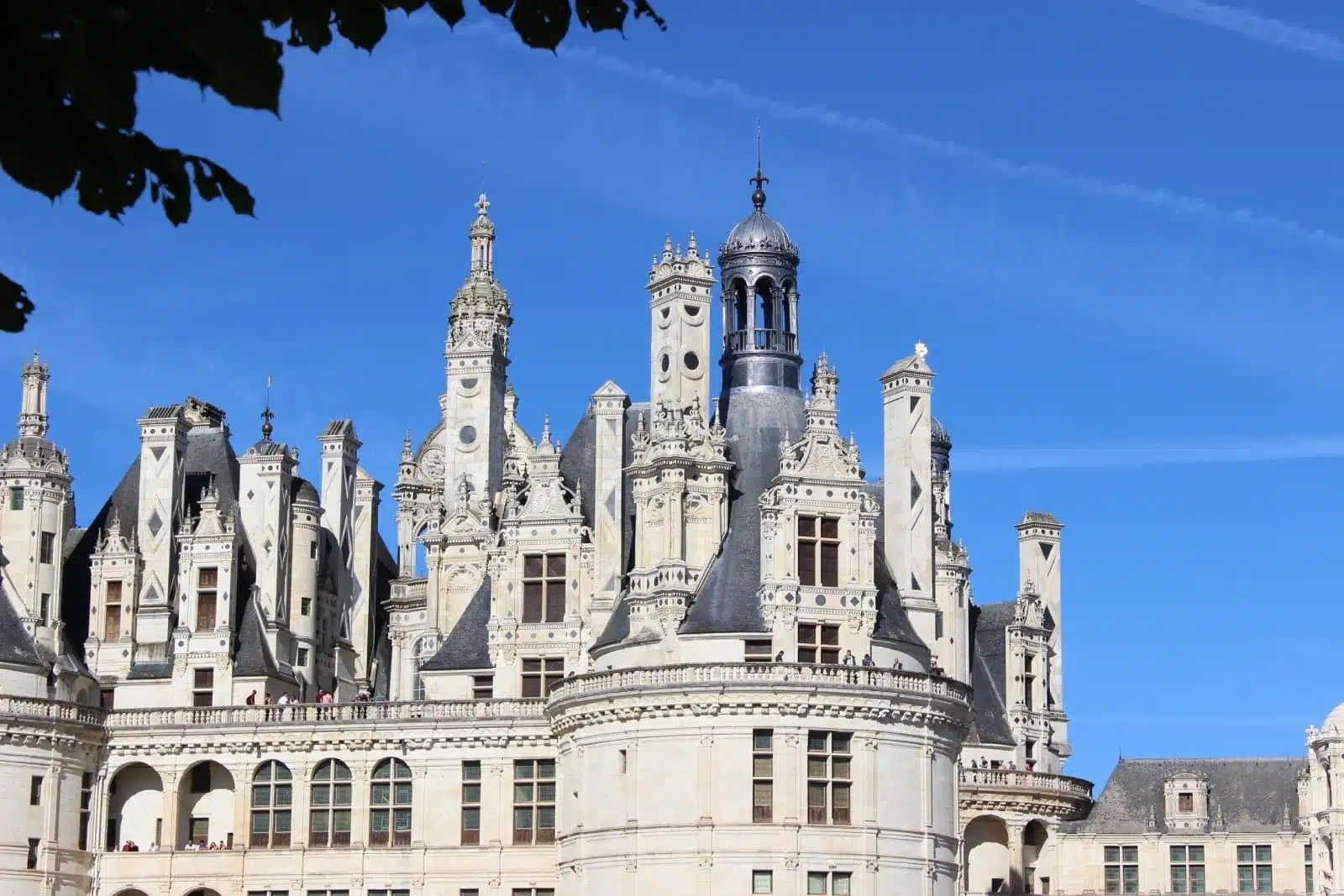
Image Credit: Shutterstock / Aby Gaya
The Château de Chambord is a symbol of the Renaissance era’s architectural brilliance and a monument to the ambition of King François I. With its iconic double-helix staircase, possibly designed by Leonardo da Vinci, and its imposing silhouette featuring 440 rooms, Chambord is a masterpiece of complexity and beauty. Its vast estate, open to the public for exploration, offers a glimpse into the grandeur of French royalty.
Insider’s Tip
Visit early in the morning or late in the afternoon to avoid crowds and capture the château’s stunning façade in the soft light.
When to Travel
Spring and fall offer mild weather and fewer tourists, making these seasons ideal for visiting.
How to Get There
Chambord is accessible by car from Paris in about two hours or by train to Blois, followed by a short bus or taxi ride.
2. Château de Chenonceau
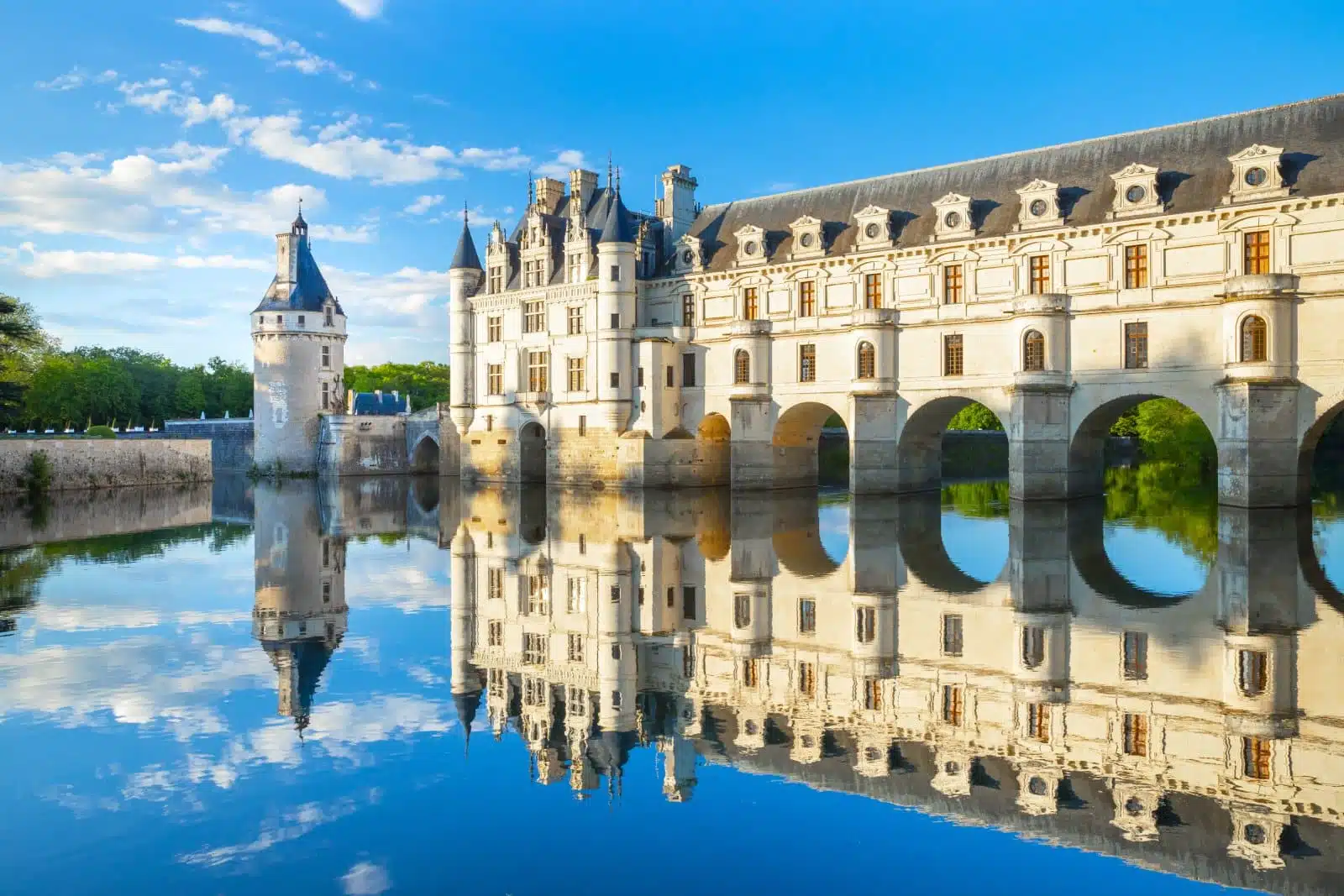
Image Credit: Shutterstock / proslgn
Spanning the River Cher, Château de Chenonceau is a sight to behold. Known as the “Ladies’ Château” for its history of influential female residents, Chenonceau blends Gothic and Renaissance elements. Its beautifully maintained gardens and interiors, including an original kitchen and lavishly furnished rooms, reflect the elegance and sophistication of its past inhabitants.
Insider’s Tip
Take a guided boat tour along the River Cher for a unique perspective of the château’s exterior and gardens.
When to Travel
The gardens are in full bloom during spring and summer, offering a spectacular display of colors and fragrances.
How to Get There
Chenonceau is easily reached by train from Tours, with a short walk from the station to the château.
3. Château de Villandry
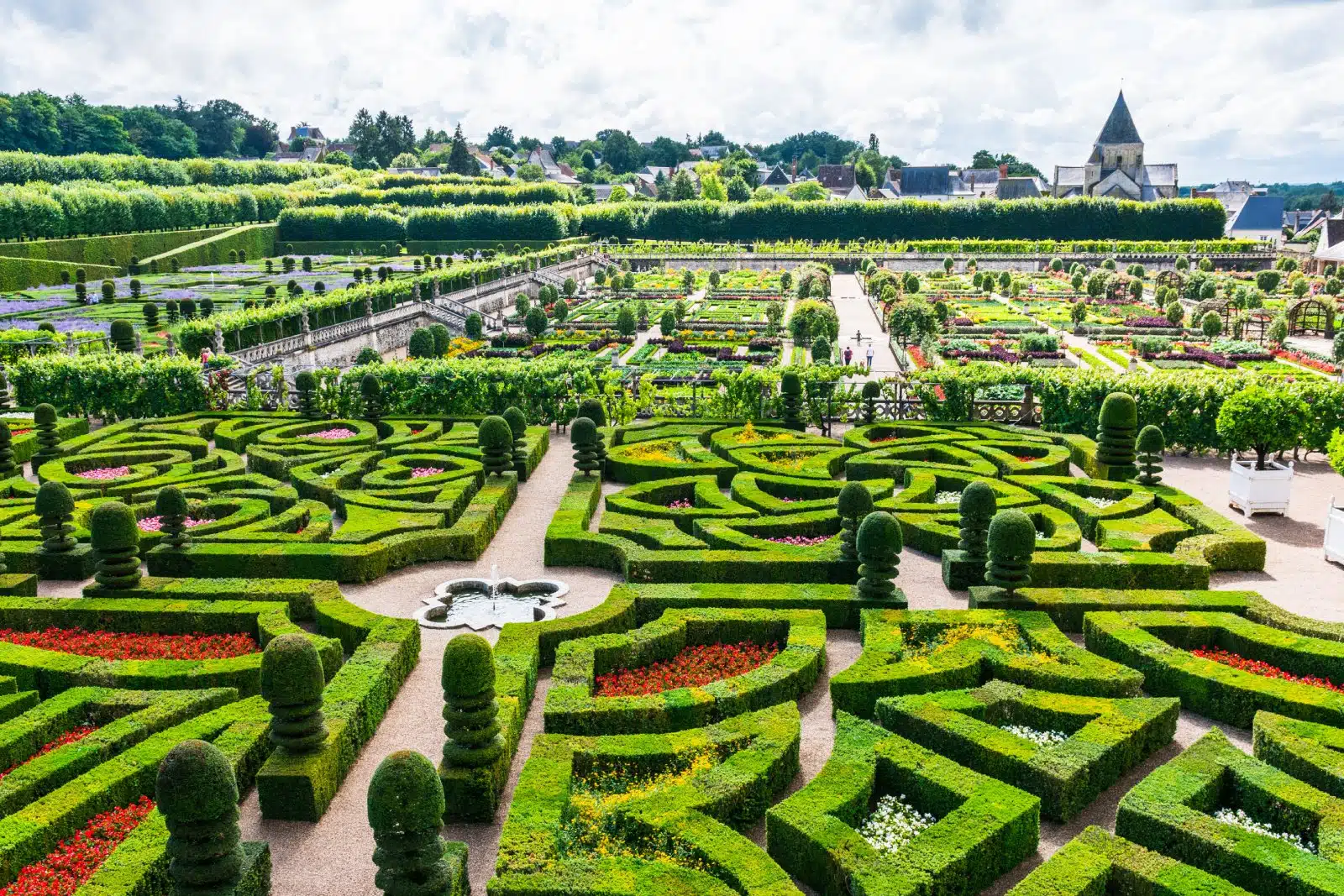
Image Credit: Shutterstock / boivin nicolas
Famous for its Renaissance gardens, Château de Villandry offers a harmonious blend of architectural beauty and horticultural mastery. The gardens are divided into four terraces, each with its own theme and design, from ornamental flowers to vegetable gardens, all meticulously maintained to offer year-round magic.
Insider’s Tip
Participate in one of the garden workshops to learn about the techniques used to maintain Villandry’s gardens.
When to Travel
Summer is the best time to see the gardens in their full glory, though every season offers its own charm.
How to Get There
Villandry is a short drive from Tours, with local buses also available for direct access to the château.
4. Château d’Amboise
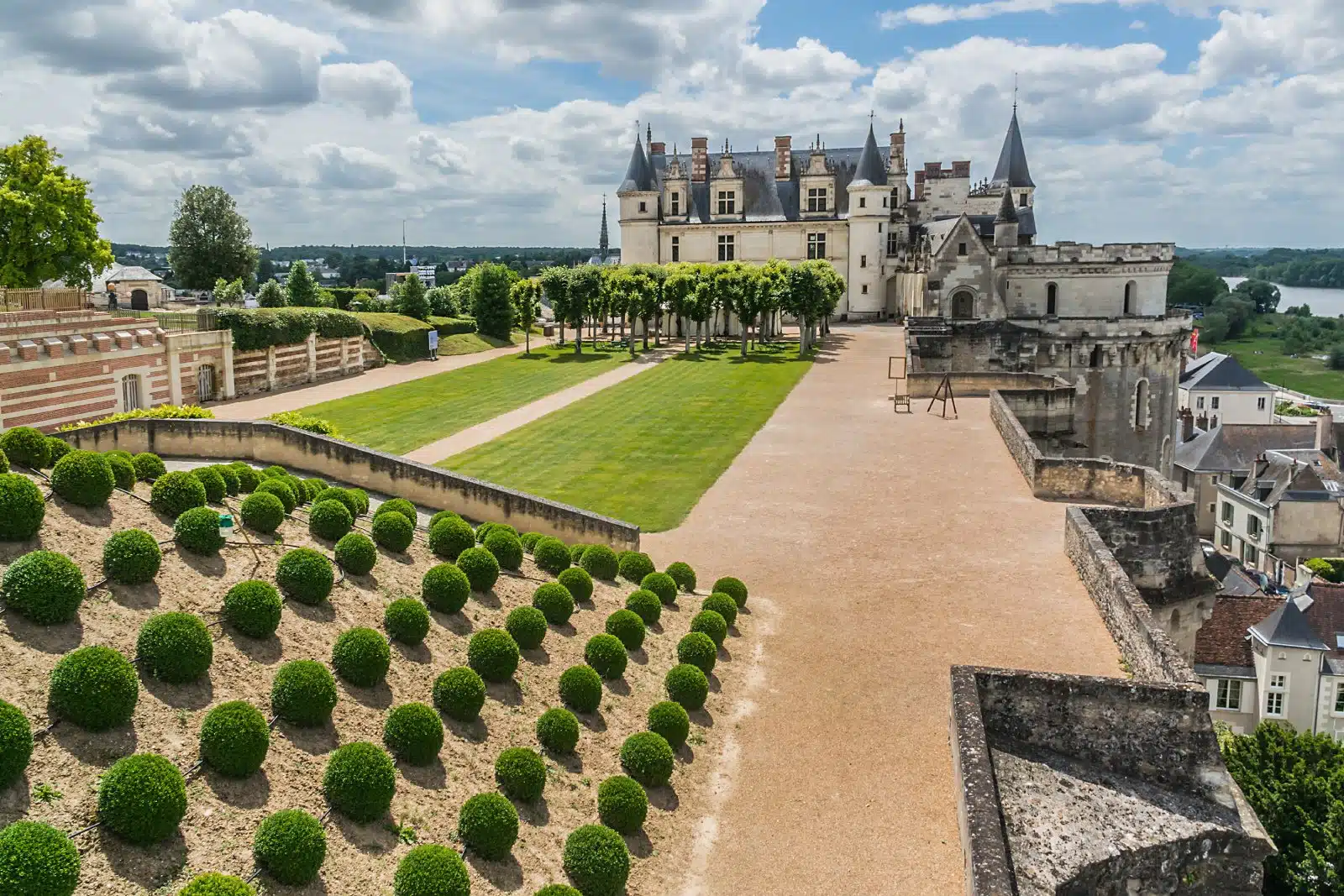
Image Credit: Shutterstock / Kiev.Victor
Perched above the Loire River, the Château d’Amboise is a historic site of national significance, offering panoramic views of the valley. It served as a residence for several French kings and is the final resting place of Leonardo da Vinci. The château’s Gothic and Renaissance architecture, along with its landscaped gardens, provides a window into the life of French royalty.
Insider’s Tip
Visit the Chapel of Saint-Hubert where Leonardo da Vinci is buried, a lesser-known but profoundly historic site within the château grounds.
When to Travel
Spring and autumn provide the best climate for exploring the extensive grounds without the summer crowds.
How to Get There
Amboise is accessible by train from Paris, with the château located a short walk from the Amboise station.
5. Château de Blois
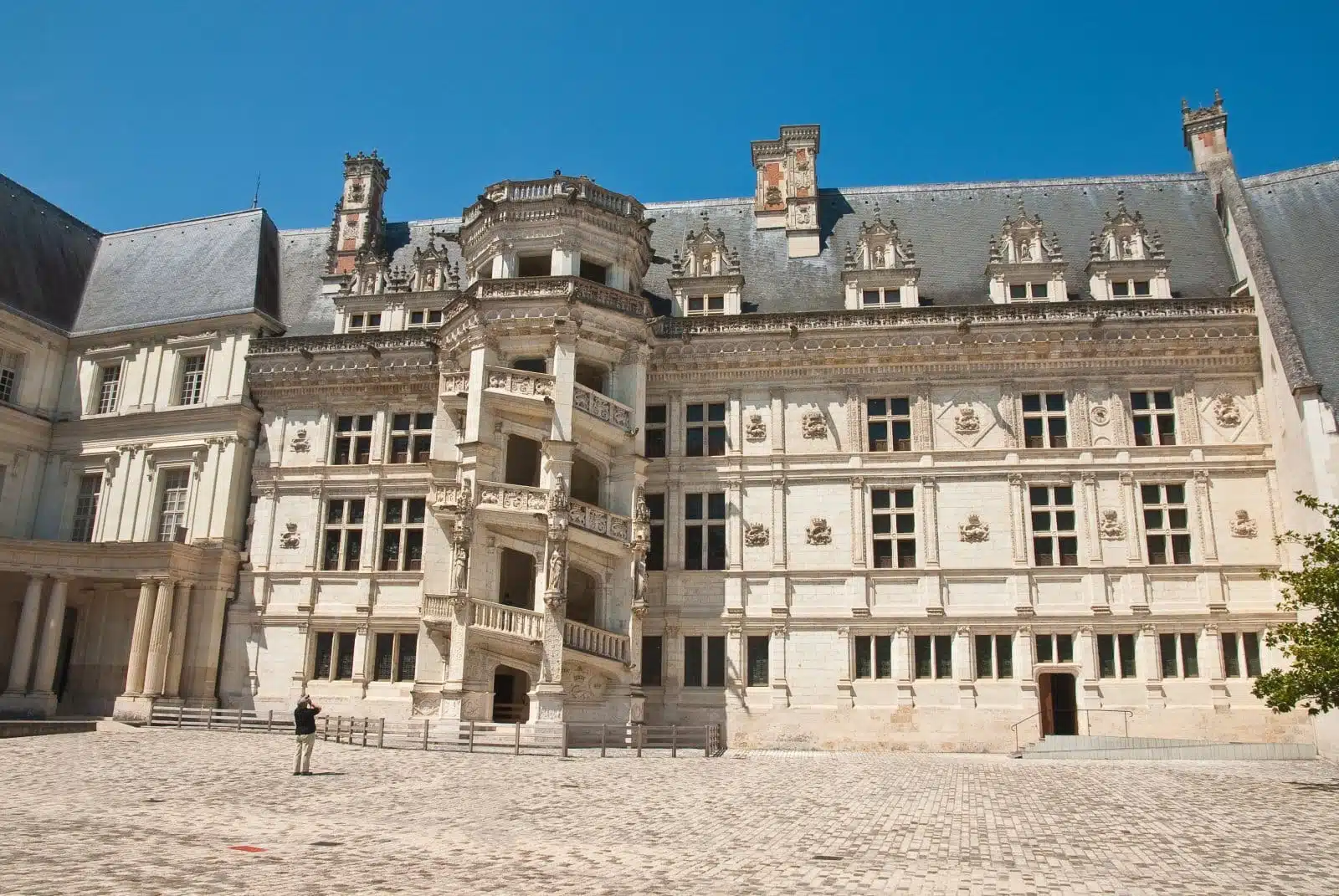
Image Credit: Shutterstock / slava17
The Château de Blois, with its four distinct wings representing different architectural styles from Gothic to Classical, serves as a living history book of French architecture and royal history. Once the favorite residence of King Louis XII, the château offers an intimate look into the daily life of French royalty, highlighted by the ornate Hall of the States General.
Insider’s Tip
Don’t miss the Sound and Light show held in the courtyard during the summer months, offering a spectacular evening experience that brings the château’s history to life.
When to Travel
Late spring to early fall is ideal, with special events and exhibitions often held during these months.
How to Get There
Blois is easily accessible by train from Paris, and the château is a short walk from the Blois station.
6. Château de Cheverny
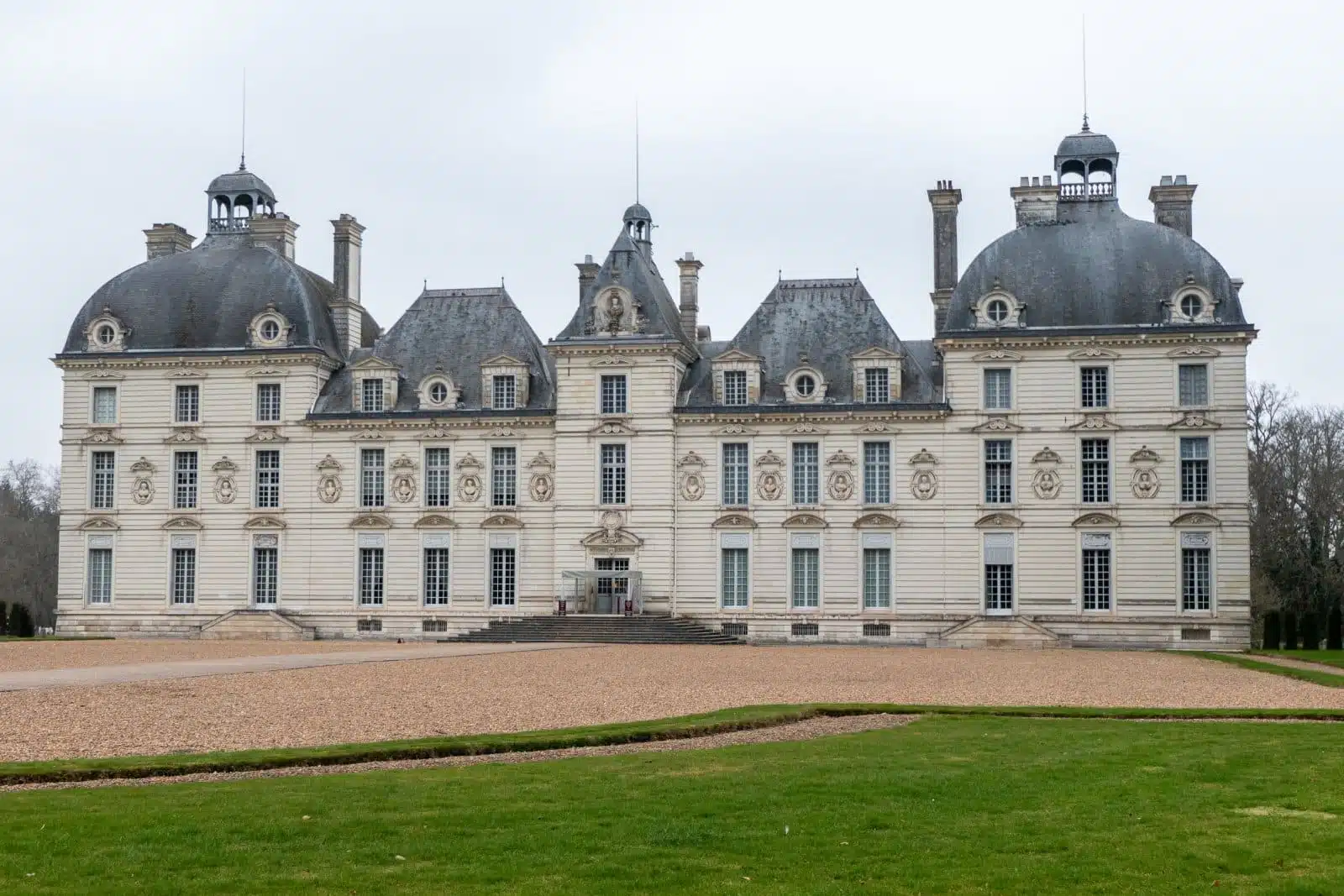
Image Credit: Shutterstock / Jean-Marc Pierard
Renowned for its sumptuous interior and well-preserved furnishings, Château de Cheverny is a celebrates the lavish lifestyle of the French nobility. The château, which inspired Hergé’s Marlinspike Hall in the Tintin comics, also features beautiful gardens and a kennel with hunting dogs, offering a glimpse into the tradition of French aristocratic hunts.
Insider’s Tip
Visit in the early evening to witness the feeding of the hounds, a unique spectacle that highlights the château’s hunting heritage.
When to Travel
April to October is the best time to visit, with the gardens in bloom and the kennel active.
How to Get There
Cheverny is a short drive from Blois, with local bus services also connecting the two locations.
7. Château de Azay-le-Rideau
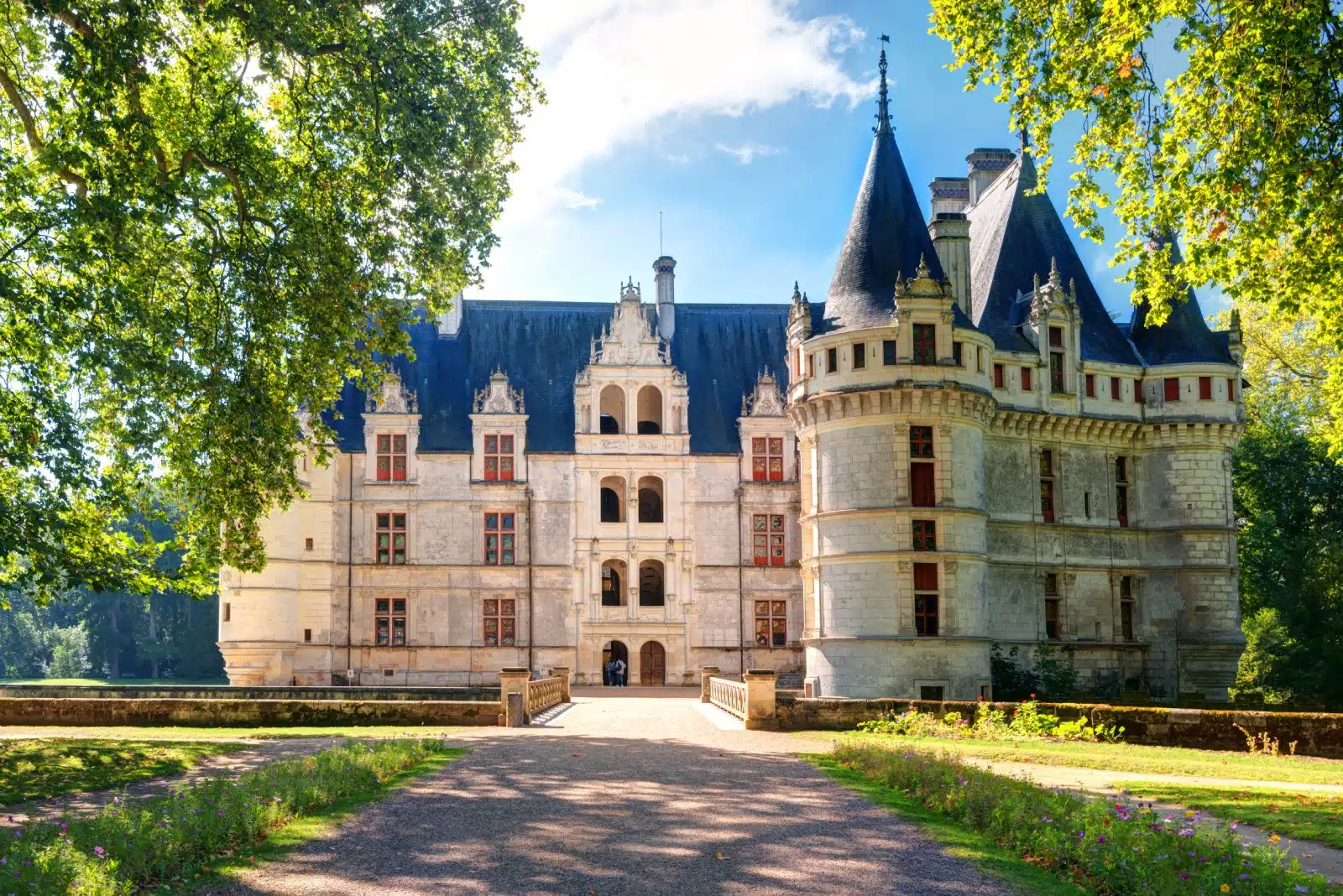
Image Credit: Shutterstock / Viacheslav Lopatin
Built on an island in the middle of the Indre River, the Château de Azay-le-Rideau is one of France’s finest examples of Renaissance architecture. Its reflection on the river’s calm waters creates a stunning visual effect, often described as a French fairy tale coming to life. The interior, though less opulent than some of its counterparts, offers a cozy and intimate look at the Renaissance lifestyle.
Insider’s Tip
The best photographs of the château can be taken from the opposite bank of the river, especially during the golden hour when the setting sun illuminates the façade.
When to Travel
The château is enchanting year-round, but visiting from May to September allows for full enjoyment of the gardens and the surrounding landscape.
How to Get There
Azay-le-Rideau is accessible by train from Tours and a short taxi ride to the château.
8. Château de Chaumont-sur-Loire
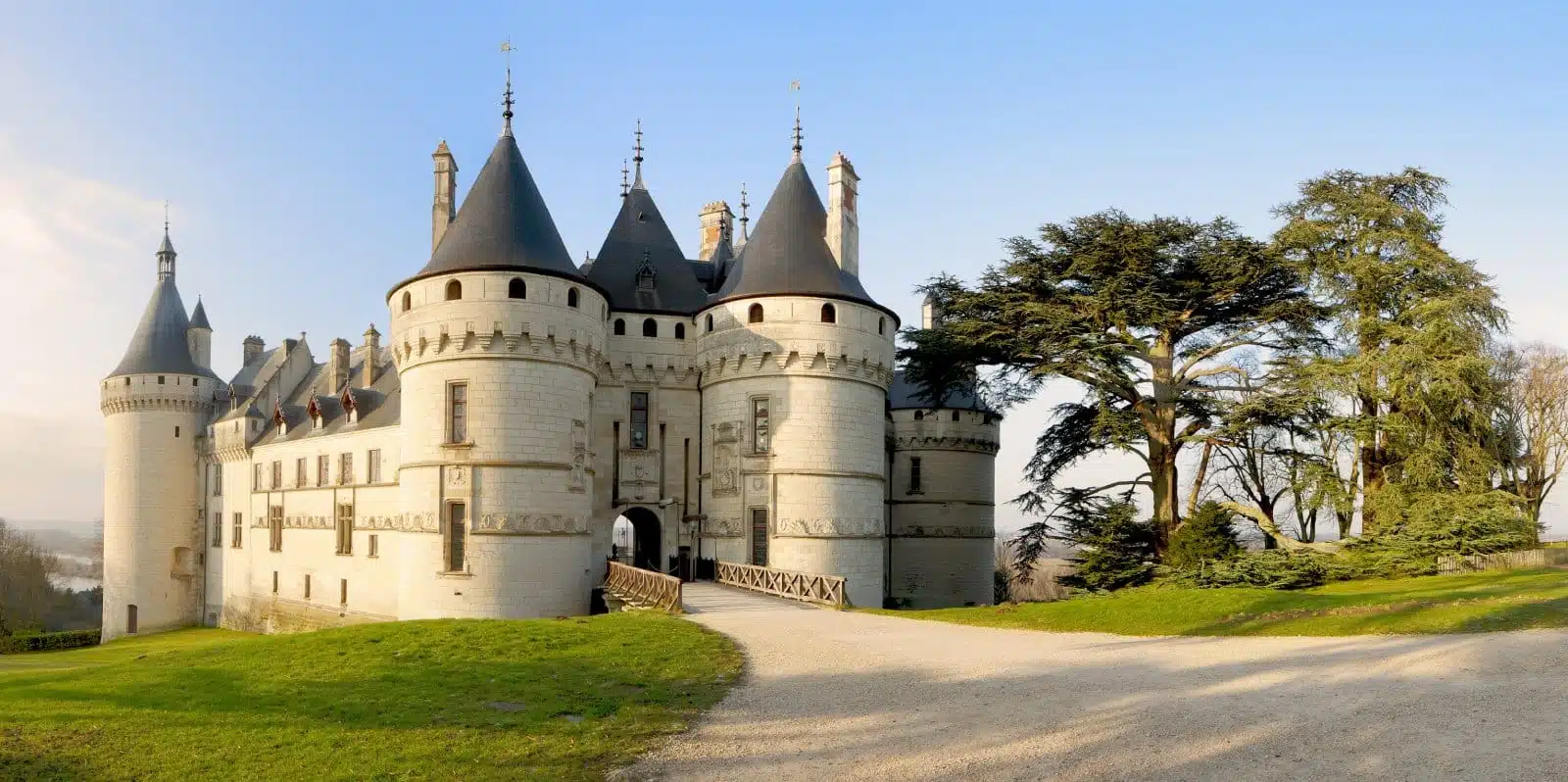
Image Credit: Shutterstock / Bruno Mazzetti
The Château de Chaumont-sur-Loire stands majestically above the Loire River, offering stunning views of the surrounding area. Known for its annual Garden Festival, the château blends historical architecture with contemporary garden design, creating a dynamic and evolving landscape that encourages visitors to contemplate the relationship between art, nature, and heritage.
Insider’s Tip
Plan your visit during the Garden Festival to see the grounds transformed by innovative landscape designs from around the world.
When to Travel
The Garden Festival runs from April to November, making these months particularly appealing for a visit.
How to Get There
Chaumont-sur-Loire is best reached by car from Tours or Blois, with local bus services available during the tourist season.
9. Château de Langeais
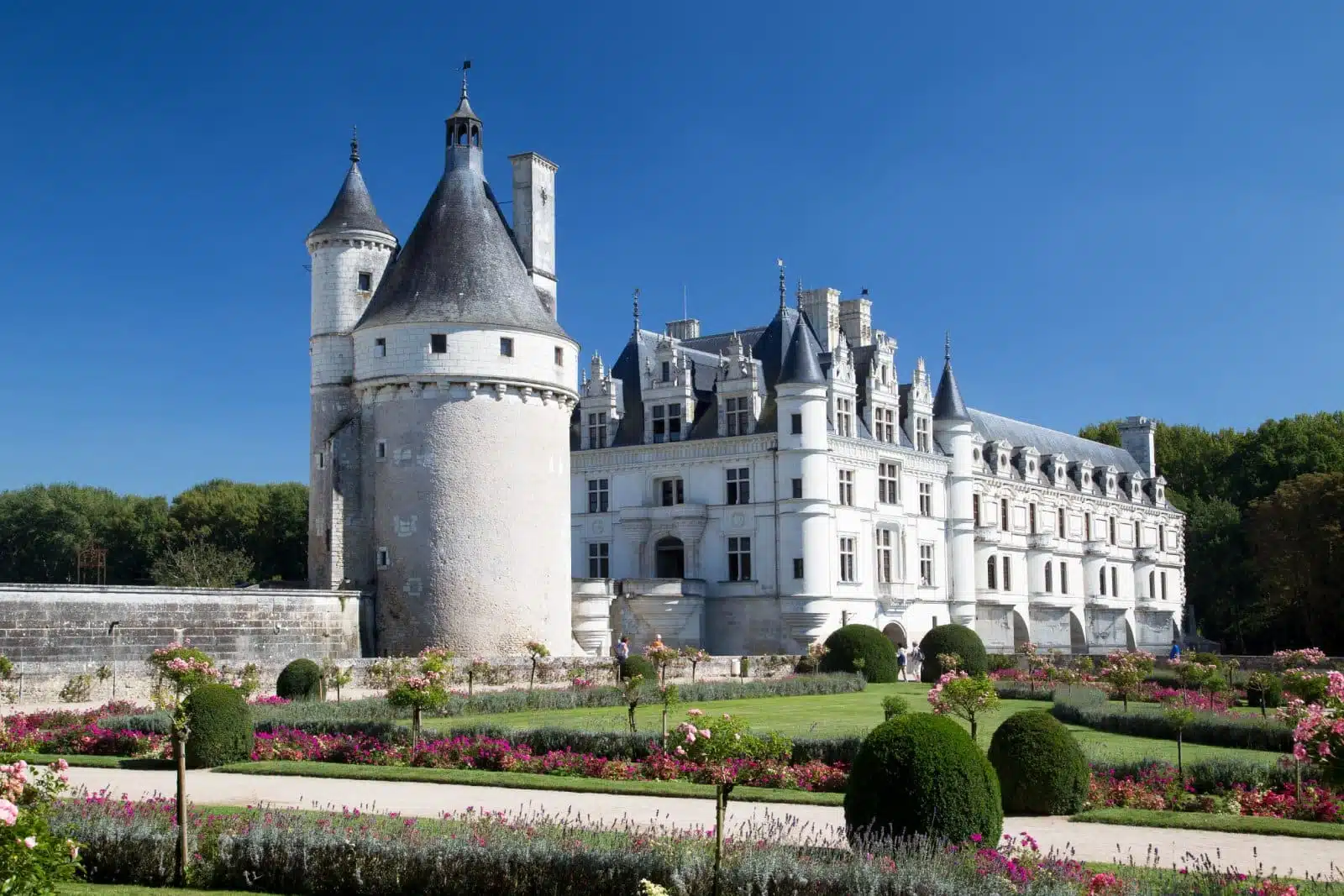
Image Credit: Shutterstock / YueStock
The Château de Langeais offers a fascinating glimpse into medieval life, with its well-preserved interiors and one of the oldest keep in France. The château also played a significant role in French history as the site of the marriage between Charles VIII and Anne of Brittany, which led to the unification of Brittany and France.
Insider’s Tip
Don’t miss the daily demonstrations of medieval construction techniques, offering insight into how these magnificent structures were built.
When to Travel
Visiting from April to October allows for the most pleasant weather and the opportunity to see the château’s living history presentations.
How to Get There
Langeais is a short train ride from Tours, with the château located within walking distance from the Langeais station.
10. Château de Fontainebleau
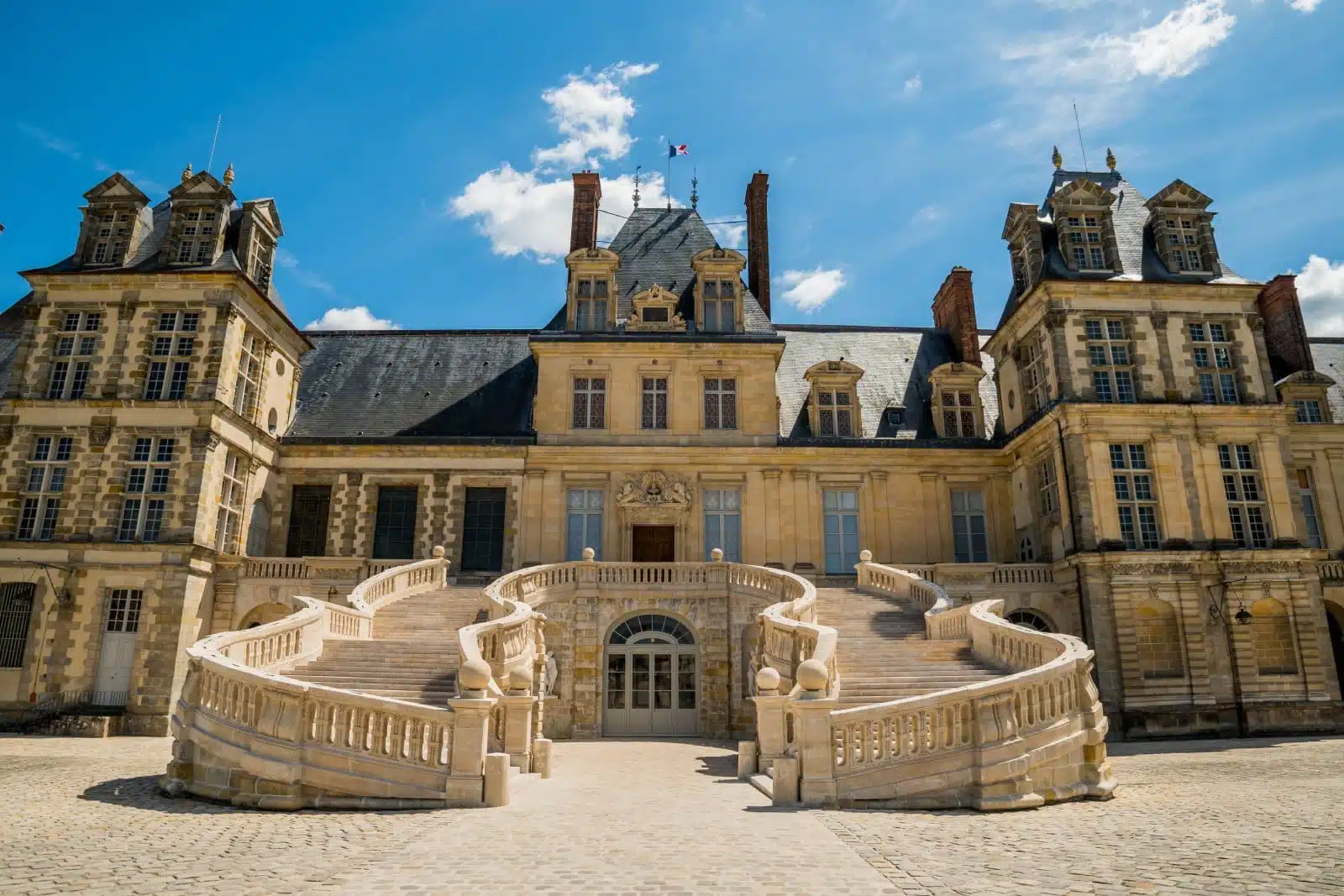
Image Credit: Shutterstock / Strikernia
Though slightly outside the traditional Loire Valley circuit, the Château de Fontainebleau is a must-visit for its historical significance and architectural beauty. With over 800 years of history, it served as a residence for French monarchs from Louis VII to Napoleon III. Its vast grounds, intricate interiors, and the surrounding Fontainebleau Forest offer a comprehensive look at French royal and imperial history.
Insider’s Tip
Explore the forest on a guided tour to discover its history and connection to the château, including sites used by royalty for hunting and leisure.
When to Travel
Spring and fall offer the best weather for exploring both the château’s interiors and the surrounding forest.
How to Get There
Fontainebleau is accessible by train from Paris, followed by a bus or taxi to the château.
The Bottom Line
The châteaux of the Loire Valley are living stories, each offering a unique window into the periods that shaped them. From the grandiose Chambord to the intimate Azay-le-Rideau, these estates invite you to explore the breadth of French history, culture, and art. As you journey through the valley, let the châteaux guide you to a deeper understanding of France’s heritage, enriched by the exquisite local cuisine and wines that make this region a feast for the senses.
More From The Green Voyage
The 6 Best Luxury Train Journeys Around the World
Boutique River Cruises in Southeast Asia
Eco-Friendly Luxury Travel Tips and Top Destinations for the Conscious Explorer
The post 10 Châteaux of the Loire Valley – A Guide to France’s Royal Past 2024 first appeared on The Green Voyage.
Featured Image Credit: Shutterstock / Unai Huizi Photography.
For transparency, this content was partly developed with AI assistance and carefully curated by an experienced editor to be informative and ensure accuracy.
